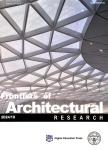Architecture as spatial storytelling:Mediating human knowledge of the world,humans and architecture
作者机构:Department of ArchitectureSchool of Architecture and DesignBeijing Jiaotong UniversityBeijing 100044China
出 版 物:《Frontiers of Architectural Research》 (建筑学研究前沿(英文版))
年 卷 期:2019年第8卷第3期
页 面:275-283页
核心收录:
学科分类:08[工学] 0813[工学-建筑学] 0814[工学-土木工程]
基 金:supported by the Fundamental Funds for Humanities and Social Sciences of Beijing Jiaotong University China
主 题:Architecture Spatial storytelling Mediating Human knowledge
摘 要:Since the 1960s,architecture has been interpreted by Structuralism as a system of signs,which results in the problem that architecture is isolated from humans and the *** contrast with this idea,this paper demonstrates that architecture is designed as spatial storytelling to mediate human knowledge of the world,humans and *** research method consists of an original survey of meaning and interpretation drawn from the fields of philosophy,linguistics,hermeneutics,humanistic geography,narrative theory,psychology,architectural theory and museology,in combination with the researcher’s personal perception and *** employing three elements-materials,configuration and time-to conduct parallel analysis of components of the world,humans and architecture,this paper contributes to an original theoretical model for analysing the idea of architecture as spatial ***,this study concludes that,since it is constructed of meaningful materials,meaningful configuration and meaningful time,architecture is a form of spatial storytelling,which mediates human knowledge of the world,humans and architecture,thus shaping human intellectual record both tangibly and ***,the fact that architecture is connected with humans and the world has been demonstrated by spatial storytelling,while also being carried forward from generation to generation.



